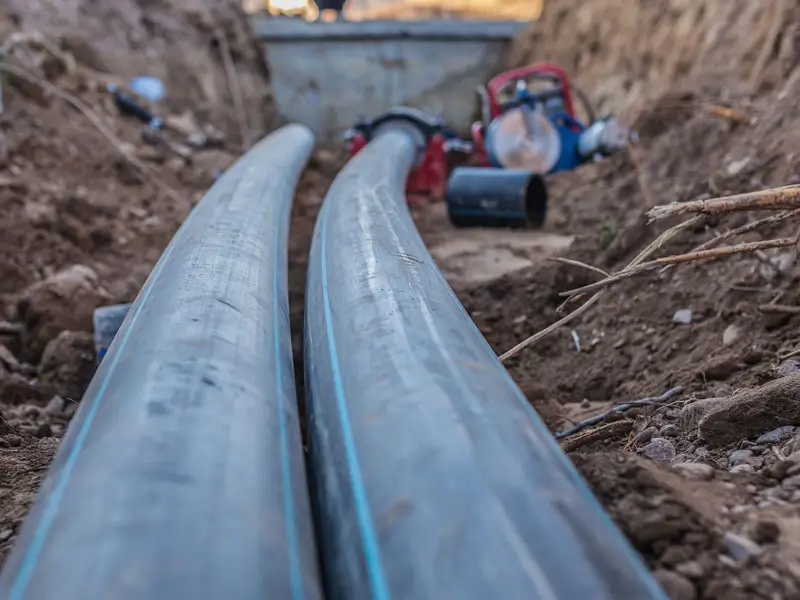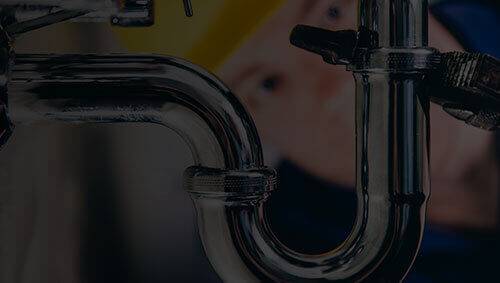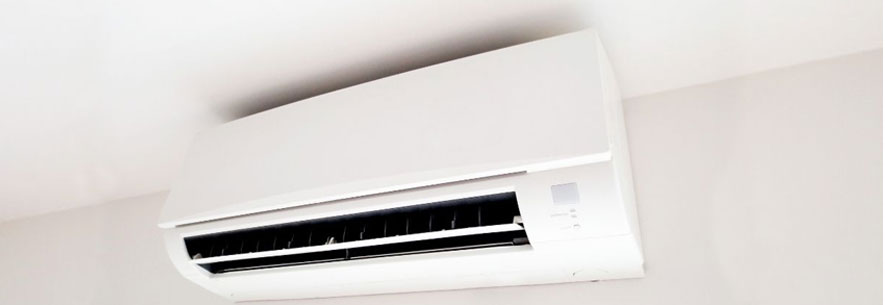Is your water heater driving you nuts with a round of knocking sounds that just won’t quit? Don’t panic – that doesn’t necessarily mean the whole thing is shot and ready for the scrapyard. But those noises could be your tank’s way of waving a little red flag.
Sediment buildup, excessive pressure, or even just some aging components might be to blame for that racket. The good news is some causes allow for simple DIY fixes to silence things. Other situations may require calling in professional plumbing backup.
In this blog, we’re exploring all the potential reasons behind those knocks, rattles, and pops coming from your water heater. You’ll learn some easy maintenance tips to prevent noises too. If the issue is major, we’ll explain when it’s time to wave the white flag and replace that noisy tank once and for all.
Common Causes for Knocking Noises in Water Heaters
From high-pitched pings and knocks to low rumbling thuds, there’s certainly no shortage of spooky sounds your water heater could start making. But don’t run for the hills just yet – many of these noises can actually be explained by some common operational issues. Let’s unmask the potential culprits:
Sediment Buildup
Over time, minerals and hardness in your water supply can solidify into tough sediment layers coating the bottom of your tank. As the burner or heating elements activate, all that built-up gunk gets super-heated and expands, causing it to crack and shift around violently. The result? A hellish Korean kick-boxing match emanating from your basement.
Water Hammer
If those knocks have more of a muffled, reverberating boom to them, the likely suspect is something called water hammer. This occurs when water abruptly starts or stops flowing into the tank, creating shockwaves through piping. Things like dishwashers, washing machines or pumps cutting on/off generate hammerknock.
Heat Traps
Many water heater installations now include heat traps on inlet/outlet pipes to prevent wasteful thermal convection as hot water rises out of the tank. However, sediment buildup in these devices can allow some convection, leading to pockets of overheated water that rumble and knock as they circulate back down.
Expansion and Contraction
When those heating elements cycle on, the metal tank rapidly expands as it heats up. Then cooling periods allow the tank to contract back down. This perpetual expanding and shrinking can make all sorts of pinging, knocking and cracking sounds as the tank materials flex.
Loose Piping or Mounts
Older tanks may develop loose pipe connections or mounting hardware over decades of thermal stress. When heating cycles activate, this allows sufficient movement and vibration for pipes, elements or the shell itself to knock against surfaces. Tightening connections sometimes helps.
High Water Pressure
Excessive pressure in municipal lines often gets transferred into home plumbing systems – including your water heater. Too much built-up pressure can cause all sorts of knocking and banging to occur as water struggles against the tank and pipes.
While the thud and knock show goes on, the good news is many of these noise triggers respond well to simple DIY remedies or just require a professional plumber’s skilled hand to resolve. Silencing that percussive serenade is usually an easy fix!
DIY Remedies for Water Heater Noises
If your water heater has started sounding more like a rambunctious neighborhood drum circle lately, don’t immediately reach for those noise-canceling headphones. Many of the common knocking, popping, and rumbling culprits can actually be resolved through some simple DIY troubleshooting first.
Flush the Tank
For sediment-related disturbances, giving your water heater tank a good flushing is often the cure-all. By attaching a garden hose to the drain valve and running the tank until discharge appears clear, you’ll help remove any solidified gunk contributing to those kickboxing theatrics.
Install a Water Pressure Regulator
Does it sound like your basement’s been taken over by a family of angry poltergeists? Excessive water pressure could be the real phantom menace. Installing an affordable pressure-reducing valve can eliminate those excessive line forces responsible for banging and knocking.
Secure Loose Pipes
Older tank installations may see pipes, drain lines or even mounting hardware working themselves loose over time. Use pipe tape, no-burst strips or hanger brackets to snug up any components knocking about. For stubborn looseness, it may require disassembling and re-tightening connections.
Check and Replace Heat Traps
If knocking or rumbling seems concentrated around inlet/outlet pipes, deteriorated heat traps could be enabling convection currents. Replace these devices as needed to prevent hot water pockets from circulating and causing commotion.
Install Anti-Hammer Devices
For homes plagued by dreaded water hammer, invest in an affordable arresting device to absorb those shockwaves. From air chambers to water hammer arrestors, these cheap additions can make big impacts on silencing those startling boom knocks.
Insulate the Pipes
As a final noise-dampening measure, consider insulating exposed hot and cold water pipes connected to the tank. This added wrap helps minimize heat transfer vibrations that contribute to pinging and crackling reverberations.
By implementing some of these straightforward remedies, you may very well restore peace and quiet to your water heater’s operational symphony. But some cases could still require the experience of a professional plumber to properly diagnose and repair the root issue.
When to Call Professional Plumbers
Despite your valiant DIY efforts to silence that noisy water heater, some operational issues simply require the skilled hand of a licensed professional plumber to properly diagnose and remedy. If you encounter any of the following scenarios, it’s time to wave the white flag and schedule service:
Persistent Noises After DIY Fixes
Maybe you’ve flushed that tank within an inch of its life, secured every pipe connection tighter than a drum, and even installed fancy water hammer arrestors. Yet those knocks, rumbles and clanks still persist daily like a cantankerous neighbor. Prolonged ruckus often signals more serious internal issues.
Leaks Around the Water Heater
While some moisture around drain lines is normal, any active leaking around your water heater’s tank or connections spells trouble. Those leaks could indicate advanced internal corrosion, excessive pressure levels or even compromised structural integrity requiring immediate assessment.
Discolored or Rusty Water
If your home’s hot water suddenly takes on a reddish-brown tinge or starts appearing cloudy, it’s a surefire sign that rusting and sediment issues have reached an advanced stage inside that tank. Flushing likely won’t fully resolve discoloration at this point.
Inconsistent or No Hot Water
When showers fluctuate between scalding and ice cold despite setting adjustments, or you simply can’t get any hot water flow whatsoever, a professional diagnosis is an absolute must. This could indicate a faulty thermostat, heating element failure, or major leaks.
Visible Corrosion on the Tank
Examine your water heater’s exterior jacket or housing area. If you notice any signs of rust, corrosion, or moisture deterioration on those surfaces, it often reveals the tank itself is compromised and deteriorating from the inside out.
Water Temperature Fluctuations
Thermostats can wear out just like any other component. If your tank sporadically produces hot then cold water despite consistent settings, have a plumber investigate potential thermostat failure.
Water Heater is More Than 10 Years Old
At a certain point, Father Time inevitably catches up and you’ve simply extracted the maximum lifespan from your trusty tank or tankless unit. Once a water heater reaches the 10+ year mark, any recurring noises or operational issues likely signal full replacement is necessary.
While diagnosing noises is sometimes simple enough for experienced DIYers, any signs of serious underlying issues demand the expertise only a professional plumber can provide. Their trained technicians can quickly assess the situation and implement the proper long-term solution – whether through repair or full system replacement.
Preventative Tips for Water Heaters
An ounce of prevention is worth a pound of cure, as the old saying goes. And that pragmatic advice definitely applies when it comes to keeping your home’s water heater operating quietly and efficiently for years to come. A little routine maintenance really does go a long way!
Schedule Annual Flushes
At least once per year, make a point of draining and flushing your water heater tank to clear out any sediment buildup. Those hardened mineral deposits insulate heat transfer and contribute to alarming popping and cracking sounds if left unchecked. A simple flush purges that gunk.
Test T&P Relief Valve
That temperature and pressure relief valve plays a crucial safety role in protecting against disastrous tank failures or explosions. Briefly lifting the valve lever allows you to verify it’s not gummed up, stuck, or corroded. Replace the valve if it fails to re-seat properly.
Inspect the Anode Rod
The sacrificial anode rod inside tank-style water heaters is designed to deteriorate over time, attracting corrosive elements to itself. But a depleted rod means deterioration transfers to the tank itself. Check the rod annually and replace it if more than 6 inches of core wire is exposed.
Secure Tank’s Base
Shoddy installations often lead to loose connections and rattling tanks over time. Inspect your unit at least seasonally and use moisture-resistant shims or water heater pads to tightly re-secure it level against the wall or on a concrete pad.
Install Heat Traps
These factory-installed or aftermarket components restrict constant thermal convection in inlet/outlet pipes, preventing undesired heat transfer and circulation sounds. Make sure your water heater has them properly installed on both intake and outtake connections.
Lower Tank Temperature
While the default 140°F setting maximizes hot water output, it also results in excessive heating cycles, expansion/contraction noises, and energy usage. Dial down that tank temp as low as 120°F for quieter, more efficient operation.
Dealing with the occasional groan or rumble is normal for any storage tank water heater. But enlisting these simple preventative practices will help ensure those sounds remain seldom, minor occurrences rather than daily rackets. Of course, Steve’s certified plumbers are always on call when professional assistance is required.
Trust Maui’s Water Heater Experts at Steve’s Plumbing & AC
When those knocks, rumbles and clangs just won’t quit no matter what DIY approach you try, it’s time to call in the true Hawaiian water heater authorities at Steve’s Plumbing & AC Service.
Our licensed plumbing team has been keeping families across Maui drenched in endless hot showers for over 35 years. We approach every noisy water heater situation with a wealth of experience and diagnostic know-how to quickly identify root causes. From sediment buildup to pressure issues to failing components, Steve’s crew has seen and repaired it all.
Don’t resign your household to disruptive daily tank tantrums a day longer! Our certified technicians utilize the latest repair techniques and equipment to restore blissful peace and quiet in your home. We also offer top-rated replacement options to upgrade to newer, quieter water heater solutions if needed.
Take back control of your hot water routine by calling the island’s water heater noise specialists at Steve’s Plumbing & AC today! Just dial (808) 563-4054 or book your service call online now. We’ll ensure those soothing hot streams keep flowing undisturbed.



